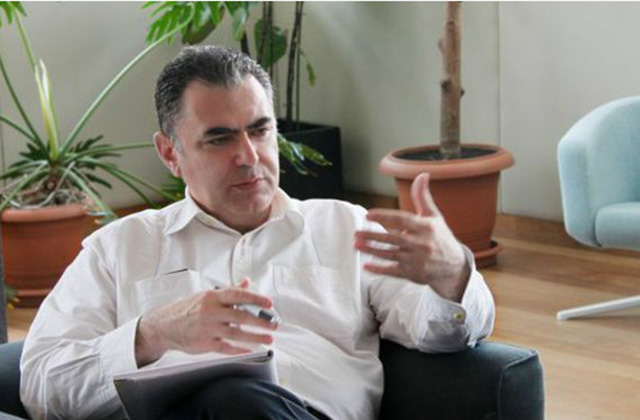The behaviour of the Armenian Government will certainly be under a lot of scrutiny: Dennis Sammut

Within working visit paid by Serzh Sargsyan, President of Armenia, to Brussels on February 26-28 it was announced on finalization of Armenia-EU negotiations, three years later from failure of the Association Agreement (AA) with the European Union (EU). Serzh Sargsyan stated on this with content at the press conference following the meeting with Donald Tusk, President of European Council.
“The key topic of today’s meeting is the new framework agreement between Armenia and the EU. Today I can mention with satisfaction that the sides have finished the negotiations,” Serzh Sargsyan said.
“The new legal document – the comprehensive and expanded partnership agreement reflects the real inclusiveness and deepness of Armenia-EU relations,” he added. Almost all EU officials have reflected to negotiations, qualifying end of talks and future signing of the agreement a third opportunity for Armenia.
168.am interviewed Dennis Sammut, Executive Director of LINKS (Dialogue, Analysis and Research), former OxGAPS coordinator (Oxford University), Member of the Advisory Council of the European Policy Centre.
Armenia and the European Union (EU) have ended talks on the new framework agreement yesterday in Brussels. Today do you see enough trust between Armenia and the EU taking into consideration bad experience of 2013 when Armenia refused to sign AA with the EU which generated distrust in the EU towards Armenia?
This question has been asked directly to one of the key negotiators in a public meeting in Brussels recently, and he said that he does not believe there will be a repetition of 2013. He also commended the work of the Armenian negotiators, who he said worked very hard. I think enough work has been done since 2013 to restore trust. Certainly in Europe this is being seen as a new page in Armenian-EU relations.
To your mind, what will this new agreement give to Armenia in political and economic fields? Will Armenia be able to do the necessary reforms if Armenia is a member of Russian-led Eurasian Economic Union (EEU), guided by other values and criterion?
To be very honest, we are in completely uncharted waters. The Eurasian Economic Union is still evolving, and rules and regulations are changing all the time. I have not seen the text of the new agreement, but I am assured that it does not contradict Armenia’s current obligations under the EEU. But your question has deeper implications the EU and the EEU are not different only because of the legal technicalities. They are based on different sets of values. The Armenian government claims it can reconcile the two. Time will tell. The first test will come in a month’s time, during and after the elections. The behaviour of the Armenian government in this regard will certainly be under a lot of scrutiny.
The scope of the new agreement is wide enough and ambitious enough. It still requires Armenia to approximate legislation to that of the EU, and to major reforms. It envisages an important role for civil society, and good governance is also covered. But we will have to see how this agreement will work in practice.
After this parties are going to sign the document. Is confrontation by Moscow possible, as a result of which again future Armenia-EU document will appear under threat? What has changed after 2013?
I do not think the Russians will object to this agreement, because the new agreement is a very different agreement to that proposed in 2013. Of course there are many common elements, but fundamentally they are two very different things. The Association Agreement offered a strategic relationship with the European Union, the present framework agreement is a more modest instrument aimed to regulate relations between the sides. Of course the Russians may take exception to one or other features. But I think they would also be cautious not to over react in case there is a reaction among Armenian public opinion.
By Araks Martirosyan

























